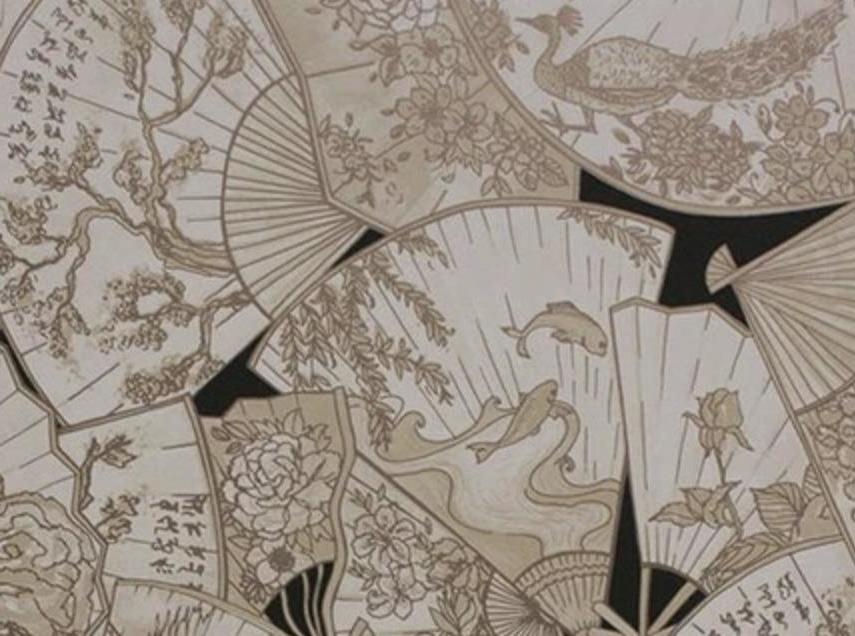
6 minute read
Internet Connection
Author: Ziyi Che Editor: Arlene Chen
Designer: Jenn XinRui Ong
Advertisement
At 8:55 on a Wednesday evening, I clicked the blue join button, entered the meeting code, watched the little blue line above “Connecting…” chasing its tail, and waited. I could not remember how many times I had been through this process, for I was so used to using Zoom, using the Internet, to connect with others. However, operating Zoom, I sometimes feel like a magician, able to talk to people from various parts of the world as well as from the past and future.

The Internet has seeped into every corner of people’s life through smartphones, computers, and televisions. The world shrinks to a size measured in hours due to transportation and to one measured in seconds because of the Internet. The Internet connects people to immense seas of information, and one can learn about everything that they are curious about. A day without phones will drive people crazy because the latter will be on the verge of disconnecting from the world. Most people always remember to keep their 6-inch-long best pals at their sides, from the moment that their alarm clock sets off to the last second before they close their eyes.

Class started at 9:00, but I was still looking at “Connecting…” I realized that my WiFi was on strike. I had taken its existence for granted, not realizing its contributions until the moment that it stops functioning. Being in a room with faulty Internet made me feel like a shipwreck survivor sitting on the beach of a deserted island in the middle of the sea though, in reality, I was in a bustling city. I apologized to my WiFi for not finding it helpful when I was disconnected from the world, but I secretly damned its mercurial temper and suppressed my impulse to smash my router and computer. Rolling its eyes, the WiFi accepted my sincere apology and finally displayed the blurry faces of my professors and classmates.


Although the Internet connects people across time and space, improving communication and information delivery efficiency, it exacerbates psychological and physical isolation. Being able to get in touch with celebrities that one will never communicate with in person makes everyone on the Internet seem so far away. I felt unacquainted with my former classmates each time that I saw their posts despite that I know that they are in the same city as I am. I used to know their hobbies, like and dislike, and tempers and characters, but that sense of intimacy dissipates because, on the Internet, they look like superstars on the runway, impeccable and unreachable. My “LIKE”s for my former classmates become perfunctory and comments formulaic, and my genuine affection for them turns into a mere appreciation of their appearance and living conditions. Visually connected but spiritually separated, nobody can make true friends on the Internet, and Internet being intangible, unstable, and short-lived, no virtual friendship can last.

More people become less enthusiastic about offline social interactions as the Internet makes life so convenient that people can sustain their lives without stepping out of their houses. They opt for the Internet as their sole connection to the world and spend their days at home alone. Some living alone in strange cities have been found dead for days and even months because of their lack of stable connections to the physical world—no family, no friends, no nothing. Such incidents happen frequently in countries, like Japan, with a large aging population who have neither Internet nor physical connection to the world. Japanese call such a phenomenon “kodokushi” (death in solitude), and the government has established a team to bury the bodies of those who die in loneliness. Young people barely set foot out of their house are also facing the risk of kodokushi because their virtual friends see only the logging-off status on social platforms and online games. No one knows why their temporary friends log off.



In September, I left my hometown, Guangzhou, China, and flew to Shanghai to attend Fudan University’s TEAN program, during which I lived alone in a small apartment for three months. In these months, I experienced the Internet’s advantages—connection to other parts of the globe—and drawbacks—Wifi instability and physical isolation. I realized that I craved company, a strong physical connection reminding me of my existence in the world. I missed the time when my family gathered during the Spring Festival. After finishing the family dinner at a nearby restaurant, my family walked in groups—kids running around together, moms chatting about anecdotes, dads discussing international issues—to my grandparents’ house. Settling down in the house, the adults pulled red packets out of their bags and handed them to the kids who yelled in thrill because they would have pocket money to buy comic books and snacks after the Spring Festival. I loved red packets, not because of money but because of the love and solicitude from my family that they contained. Putting the packets under my pillow, I often fell asleep smiling because I knew that my family was with me.

We sat before the decade-old television broadcasting the Spring Festival Party, ate fruits and sweets prepared by grandma, and chatted some more. The convivial singing and dancing on TV became the background music of my family’s conversations and laughter that did not cease until midnight. Warmth surrounded me on those cold February nights because the physical connections and love between my family members heated the air. It was these physical connections that created the unbreakable spiritual bonds within my family. Our love for one another would last, and the transitory Internet connections could not take it away.

John Donne, a seventeenth-century English poet, the author of the poem No Man is An Island, did not expect that more modern people are becoming isolated islands. The Internet connects these islands, but it is not the bridge that pulled neighbors closer to each other. It is instead an invisible force that turns the globe into a glass ball. People can glimpse other parts of the world due to the glass’s transparency. However, what they see is distorted because of the glass ball’s convexity, and the neighbors slide away from each other bit by bit on the slippery surface till there is no possibility for physical connections.

Two old Chinese sayings go “ 树欲静而风不止,子欲养而亲不待” and "天下没有不散的宴席” The former means that trees desire tranquility, but the wind will not stop, and when children finally grow up and want to repay their parents’ love and care, their parents are gone. The latter indicates that all good things will come to an end. Many of us have left or will soon leave our home countries and will not meet our family for months and even years. We will meet a lot of new friends in college and at work, but we will eventually leave each other as well. So, drop your phones when you are with your family and friends. Cherish and enjoy every second and every aspect of these personal connections before you lose the chance.












